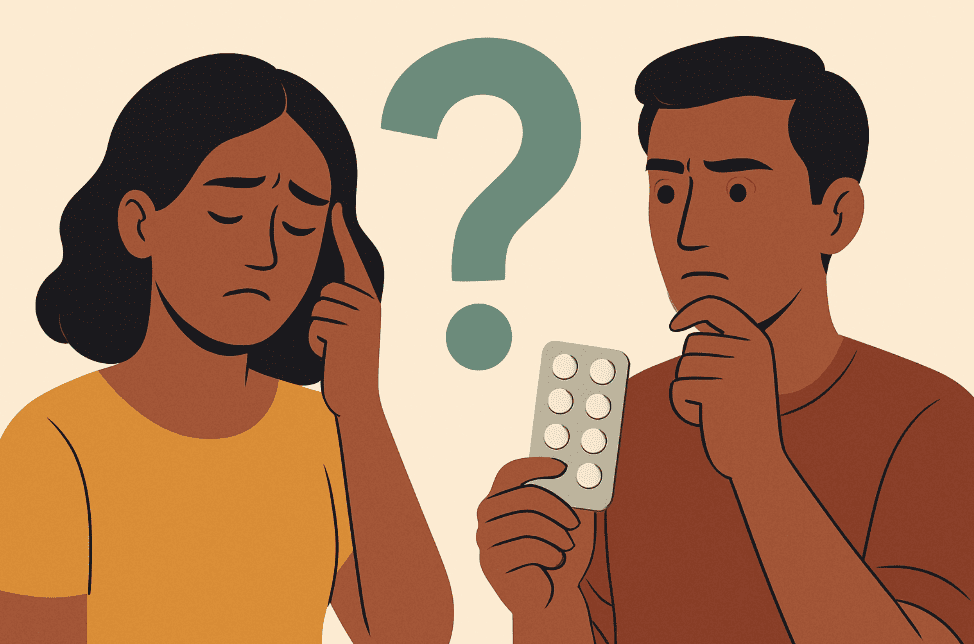Understanding Antidepressant Discontinuation: Facts vs. Fears
 Introduction: What Happens When You Stop Antidepressants?
Introduction: What Happens When You Stop Antidepressants?
If you’ve ever wondered what happens when stopping an antidepressant, you’re not alone. There’s a lot of confusion – some believe stopping these medications is extremely difficult or dangerous, while others dismiss any concerns altogether.
Recent scientific evidence offers clarity. A 2025 landmark meta-analysis published in JAMA Psychiatry examined data from nearly 18,000 patients to answer this question:
What really happens when people stop antidepressants?
Key Takeaways from the Latest Research
-
Mild and Short-Lived Symptoms Are Common
On average, people stopping antidepressants experienced just one extra symptom compared to those who continued their medication or stopped a placebo. -
What Are the Typical Symptoms?
The most common symptoms reported were:
-
Dizziness
-
Nausea
-
Vertigo
-
Nervousness
These symptoms typically appear within the first 1-2 weeks of stopping and tend to fade on their own.
-
Mood Worsening is Not Withdrawal
Importantly, the study found no increase in depression symptoms simply from stopping antidepressants. If someone develops new or worsening low mood weeks later, it’s more likely a relapse of the original illness rather than withdrawal.
Separating Myth from Fact
| Myth | Fact (According to Research) |
|---|---|
| Stopping antidepressants causes severe withdrawal in everyone. | Most people have mild, short-lived symptoms. |
| Any discomfort after stopping is a sign of relapse. | Physical symptoms are distinct from mood relapse. |
| Tapering must be extremely slow to avoid issues. | Gradual reduction helps, but overly long tapers may not be necessary. |
Why Does This Matter?
Over the years, media stories and online forums may have overstated the risks of stopping antidepressants. While withdrawal symptoms are real, they are usually manageable and temporary. For those considering stopping, this is reassuring news.
Clinicians and patients should focus on collaborative planning, monitoring symptoms carefully, and differentiating between temporary discomfort and genuine signs of relapse.
Final Thoughts
If you’re thinking about stopping your antidepressants, do so under medical guidance. Every person’s experience is unique. The most important thing is having a plan, a timeline, and support.
About Dr. Srinivas Rajkumar T
I am a Consultant Psychiatrist with specialized expertise in safe, scientific deprescribing of psychiatric medications. I help patients transition off medications like antidepressants safely, when appropriate, through a structured, evidence-based approach. My work combines international guidelines, clinical judgment, and patient education to minimize risks and maximize well-being.
I also offer care for a wide range of mental health conditions, including depression, anxiety, OCD, ADHD, addiction, and dementia care.
If you’d like personalized advice on whether to continue or taper your medication, or need a comprehensive mental health evaluation, please feel free to reach out.
📍 Apollo Clinics Velachery & Tambaram
📞 +91 85951 55808
💻 Online Consultations Available